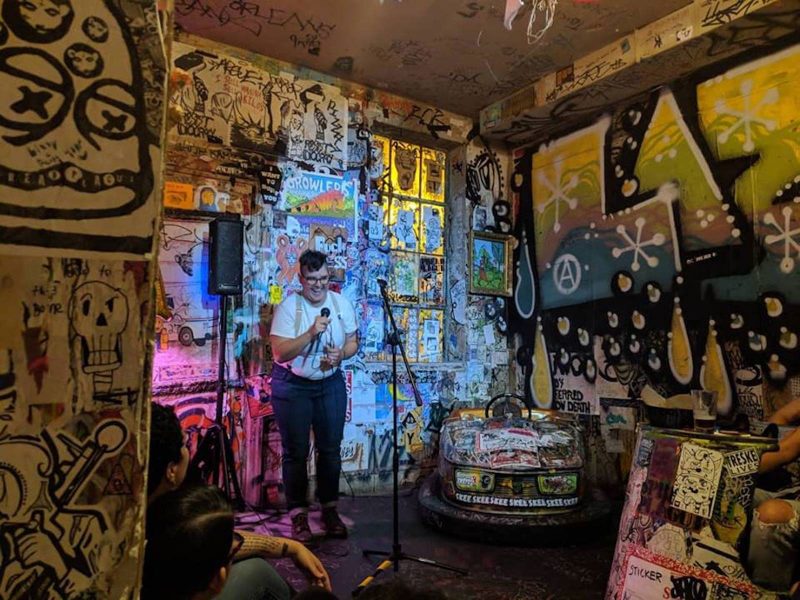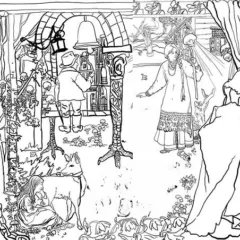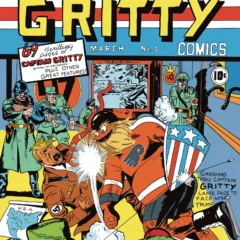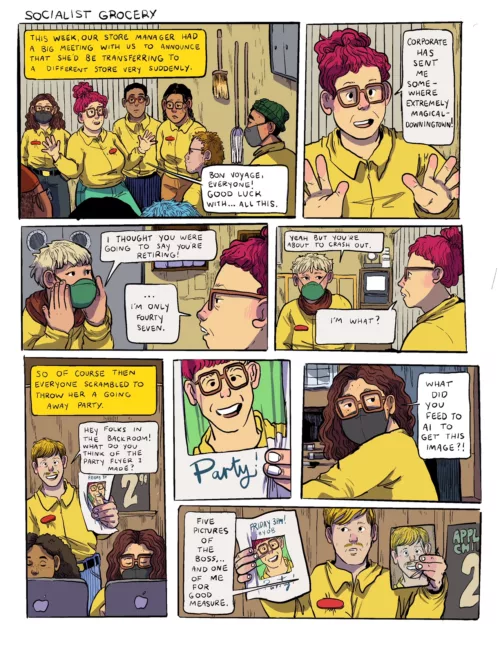
Boston Gordon has been running the reading series You Can’t Kill a Poet for almost 5 years, providing a space for queer and trans poets to share their work. It started in May of 2014, at anarchist bookstore and local institution Wooden Shoe with an audience of about 20 friends. It quickly outgrew that venue and now runs at Tattooed Mom with crowds of 60 to 100. Readings run from 8 to 10 pm, featuring 5 to 8 poets, who read for 10 minutes each. The name of the series comes from a line in an Eileen Myles poem called “Rotting Symbols.”
The ethos in the room is exuberant, lighthearted, and supportive. Beneath the ever-changing wheatpaste and graffiti of the upstairs room at Tattooed Mom, audience members cheer each poem. “The emotion, the enthusiasm, the way the space feels during a reading are poignant,” Boston says. “There’s lots of fun, like chants of f*** Ronald Reagan, not realizing a poem is going to be funny until the audience starts laughing, slideshows about Craigslist missed connections, and collections of emails from college professors telling a student how they’ve been rude.” This marks a contrast from other reading series in the city, which are often quiet affairs punctuated by brief applause.
Building a community organically through networks
Although Boston is the sole organizer, friends, participants and audience members often recommend or become readers themselves. “I always ask the audience to come talk to me if they’d like to be involved or to read at an upcoming event. We’ve had great readers from previous audiences. They’re often folks who had never read in public but felt empowered to after attending a reading.” Boston requests and reads poems from each participant, less as a quality control impulse than as a content screening gesture. Over the course of the series there have only been two open mics. At one of these, a cis male took the mic and used the opportunity to say something misogynist. Rather than try to manage the room when something like this happens, Boston prefers to pick participants ahead of time to screen out harmful content and readers who are not going to respect the goal of the series.
Boston is hesitant to claim that they are creating community. As they note, literary and queer communities have existed and continue to exist elsewhere in Philadelphia. However, You Can’t Kill a Poet is one of the longest running reading series in the city and is certainly the longest running series undeniably and explicitly by and for queer and trans people.
A place to be at ease
The impetus to start the series came from a queer youth group that Boston attended during high school. They were “the out kid” at their school and experienced a lot of violence as a result. The youth group was profoundly important for Boston because it allowed them to “just be.” Because Boston could not find a place in the existing Philadelphia scene where they felt the same sense of ease, they wanted to build a similar experience for themself and others. Although it started with friends, the series has expanded beyond any coterie. “Now I don’t know most of the readers until they come up to me at a reading or we get connected online,” Boston says.
It takes all kinds
Readers and audiences are all over the map in terms of what you might call a literary engagement — ranging from authors who may have one or several books to readers who are trying out sharing their work for the first time. Many audience members are not people who regularly attend reading series or other literary or cultural events. Boston says each audience seems to be about 50% new folks.
A lot of queer folks find the series by word of mouth, some coming in from the suburbs to be in a room where queerness and the creativity of queer people is expected and celebrated. Some readers share experiences; some writing is political. Themes of body, family, sex, and desire arise frequently. Queer people are particularly good at thinking about those things, Boston notes, but readers share material from whatever direction their creative life is taking them, and the aesthetic is open and varied.
Championing queer space
When asked about the future of the series, Boston said You Can’t Kill a Poet is not going anywhere any time soon. “Tattooed Mom is an amazingly supportive venue. Robert has been a champion of You Can’t Kill a Poet for years, giving us money when needed and always being proud to host the reading series. The employees who help me do the behind the scenes planning are always helpful, prompt, and kind.” And even after all this time, Boston has not exhausted the well of queer creativity. “I am literally never short on readers. I have a backlog of more than fifty people that I eventually need to get into a reader’s slot. We get many people who have attended previous readings and we get many people whose friends recommend them as readers. My biggest work is getting a balanced line-up with different voices and different styles of writing and reading.”
Even if queer and trans bodies are exposed to less violence and discrimination in the future, an outcome which is far from certain in this political moment, Boston Gordon is a firm believer in the value of queer separatism. “Queer Space is vital,” they say with a smile and the intensity of conviction. “Assimilation is death.”
You Can’t Kill a Poet has its next reading, Tuesday February 12, 7:30 PM – 10:30 PM, at Tattooed Mom, 530 South St..









